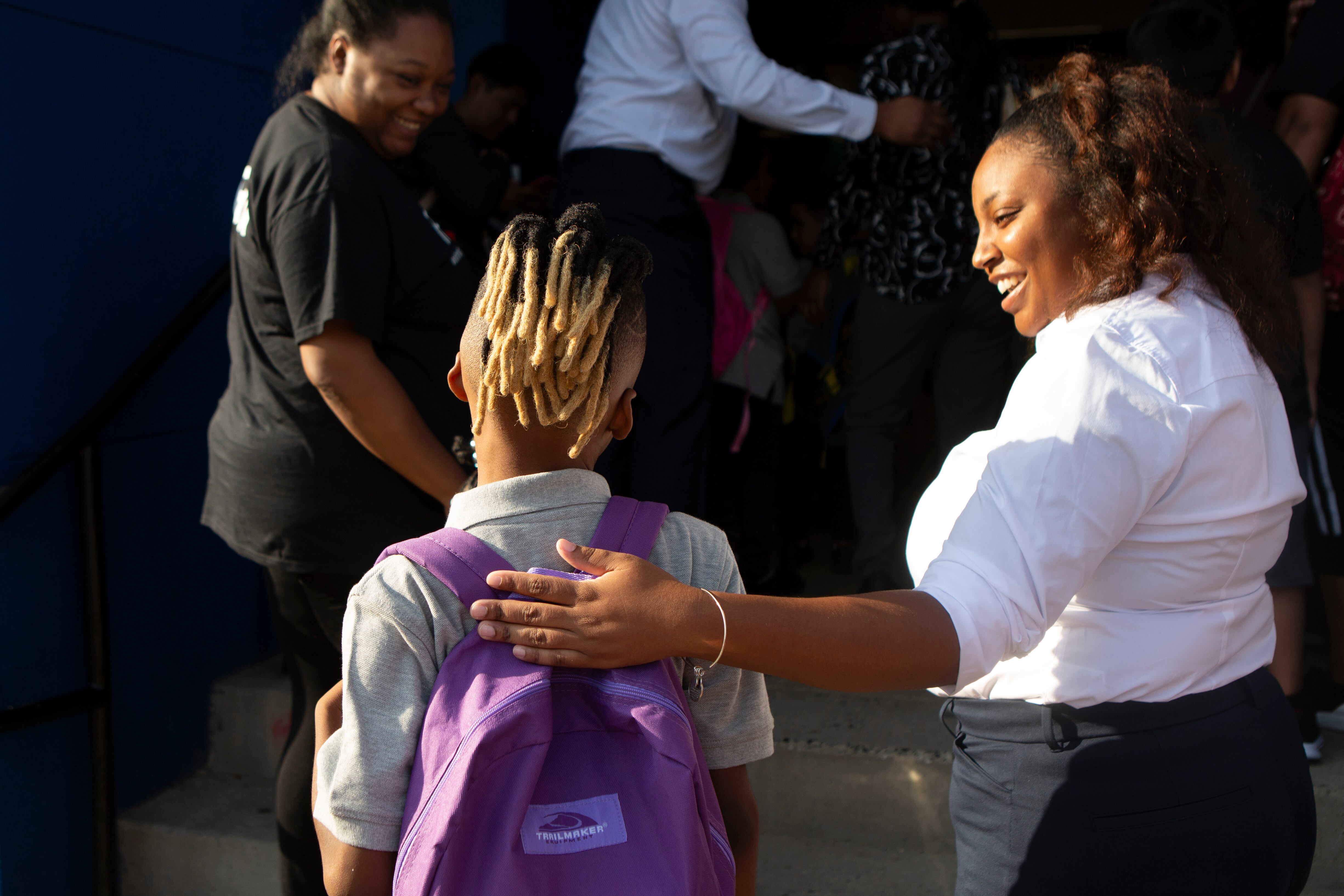Sign up for Chalkbeat Newark’s free newsletter to keep up with the city’s public school system.
In an effort to boost enrollment, Newark Public Schools will spend more than a quarter of a million dollars to rehire a marketing firm to recruit students into district schools.
School board members last week voted to approve a $276,790 contract with Memphis-based Caissa Public Strategy to recruit up to 311 students beginning July through June 2026. Newark officials did not say which students they aimed to recruit, but Caissa has been contracted by districts such as Paterson and Indianapolis Public Schools to attract students from charter schools. The district also contracted with the firm in 2022 to increase enrollment at a high school and three elementary schools.
The new contract comes as the city’s public schools, including charter schools, which are privately run but publicly funded, have seen increases in student enrollment. School and community leaders have raised questions about the district’s rising payments to charter schools, which make up Newark Public Schools’ second-largest expenditure, according to next year’s school budget.
During June’s school board meeting, Superintendent Roger León said the district has been recruiting students to attend Newark public schools, and that the district’s strategies, which include radio advertisements, billboards, and community events among others, have been effective. “The reason why we are doing what we’re doing is because we actually have results,” he said.
The district has used Caissa to recruit students “for a few years now,” Nancy Deering, the district’s acting communications director, said in an email to Chalkbeat last week.
In March 2022, board members awarded Caissa a two-year contract at a cost not to exceed $276,790 to increase enrollment at Lincoln Elementary, George Washington Carver Elementary, Speedway Elementary, and Malcolm X Shabazz High School. The district also provided Caissa with student enrollment data and withdrawal records so the company could conduct “targeted canvassing of students” and “better understand why students may have left the district in the first place,” according to a 2022 board resolution.
Between fall 2022 and fall 2024, enrollment increased at three of the schools: At George Washington, student enrollment increased by 75 students, at Lincoln by 79, and at Shabazz by 82. However, at Speedway Elementary, enrollment dropped by 11 students, from 566 students in the 2022-23 school year to 555 students in the 2023-24 school year.
Under the contract approved last week, Caissa will recruit new students by using secret shoppers, door knocking, and market and trend analysis, according to the request for services proposal last week. The firm will also use existing data to identify “key enrollment drivers for the districts,” the request specified. According to an example on the firm’s website, Caissa estimates that a district could see a return of $840,750 if it recruits 150 students, based on state and local dollars at $6,500 per student.
Historically, Newark has been one of the most underfunded school districts based on the state’s school funding formula, which uses a weighted student formula to give districts financial support in addition to local taxes. Next school year, Newark will receive an additional $101 million in funding from New Jersey, making up 82.3% of the district’s budget.
Despite the 8.8% increase in state funding next school year, district leaders say Newark remains $112 million under its local fair share of property taxes, which it has not raised since 2022.
For the 2024-25 school year, the district estimates a $27,050 per pupil cost.
Since his appointment to superintendent in May 2018, León has been clear about his intention to stop charter school expansion, reclaim public school space, and expand the district. When the state took control of the district between 1995 and 2020, state-appointed superintendents closed many public schools while the charter sector rapidly grew.
But the district, which now enrolls about 42,000 pre-K to 12th grade students, changed in size after charter schools came to Newark in 1997 when North Star Academy and Robert Treat Academy became the first charter schools in the city to welcome students. Those charter schools grew in enrollment until the 2021-22 school year and in 2023, the district surpassed charter growth, according to a Chalkbeat data analysis of New Jersey’s fall enrollment data between 2019 and 2024.
Charter schools continue to educate more than a third of the city’s public school students and next school year, the district is providing charter schools with $401 million, with $391 million paid directly to those schools, per next year’s budget.
The district received two bids for student recruitment services, including one from Caissa and another from Impact Consulting Enterprises. The fee listed on Caissa’s proposal charges the district $890 per student enrolled for the first two years, which the district has agreed to pay for 311 students. The same amount will be charged per student recruited for an additional two years if Caissa’s contract is renewed. Impact charged $768 plus a 6% media buying fee per student for the first two years and $883 per student plus a 6% media buying fee for the third and fourth years if its contract was renewed.
During Tuesday’s board meeting, member Crystal Williams, who voted against the resolution to hire Caissa, asked why the district is spending money to hire the firm and suggested that those funds go into classrooms instead.
“We already pay for marketing. We already put up billboards. We already do bus signs. Why do we need to pay a consultant, a marketing team, to go out and harass people who have already made their decision of where they want to send their kids to school?” Williams added.
In response, board member Vereliz Santana went on to point to the district’s overrepresentation of vulnerable students and its struggle to hire and retain bilingual teachers and provide more special education services.
This fall, the district expects to see more than 11,000 English language learners and more than 7,000 students with disabilities who require specialized services such as speech therapists, classroom aides, and bilingual teachers.
Jessie Gómez is a reporter for Chalkbeat Newark, covering public education in the city. Contact Jessie at jgomez@chalkbeat.org.







